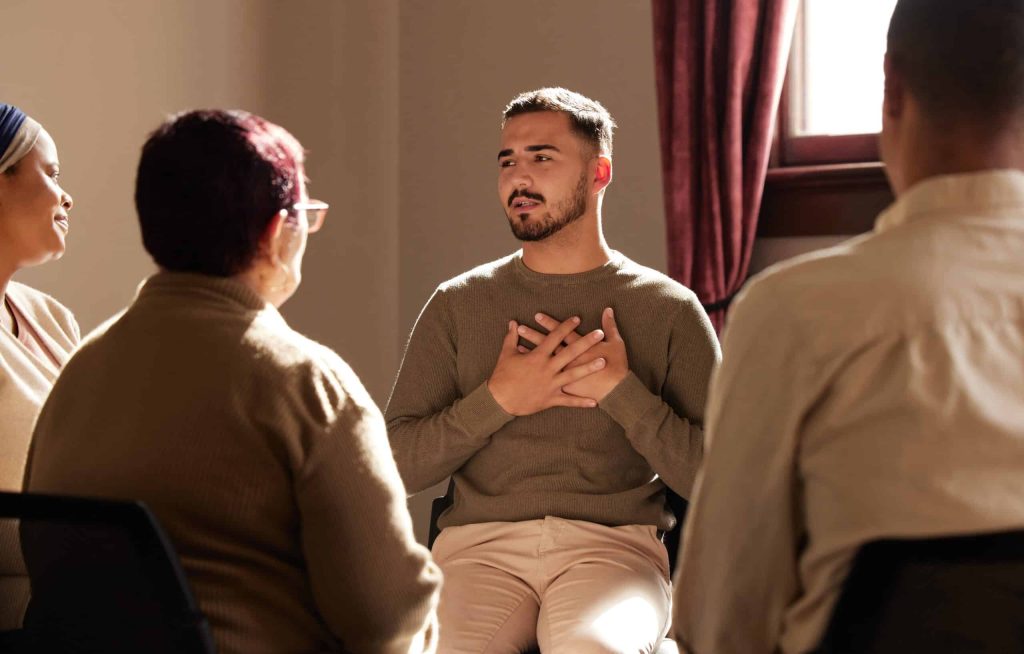Journey to LGBTQIA+ Affirmative Therapy
Navigating the complex landscape of mental health can be daunting for anyone, but it can pose unique challenges for those within the LGBTQIA+ community. Therapy tailored to the specific needs of LGBTQIA+ individuals is not just beneficial; it’s essential. In this article, we will explore the importance of LGBTQIA+ affirmative therapy and guide you through the process of finding LGBTQIA+-friendly therapists who can support you or a loved one through life’s challenges.
Understanding the Need for LGBTQIA+ Affirmative Therapy
Mental health is a critical component of overall well-being, yet LGBTQIA+ individuals often face societal barriers and discrimination that can negatively impact their mental health. These experiences can lead to higher rates of anxiety, depression, and other mental health issues within the community. LGBTQIA+ affirmative therapy is a therapeutic approach that provides a safe, supportive, and understanding environment for individuals to explore their identity, experiences, and challenges without fear of judgment or bias.
The Unique Challenges Faced by the LGBTQIA+ Community
LGBTQIA+ individuals often encounter unique life stressors, such as coming out, dealing with discrimination, and navigating relationships with family and peers. These experiences can contribute to feelings of isolation, shame, and internalized stigma that are detrimental to mental health. Affirmative therapy acknowledges these unique challenges and provides the tools to cope with them effectively.
The Importance of Affirmative Therapy
LGBTQIA+ affirmative therapy goes beyond tolerance and acceptance, actively acknowledging and addressing the specific needs of the community. This form of therapy validates individuals’ identities and experiences, fostering resilience and promoting a positive self-concept.

Finding an LGBTQIA+-Friendly Therapist
Seeking therapy can be a vulnerable process, and it’s crucial to find a therapist who is not only skilled but also culturally competent in dealing with LGBTQIA+ issues. Here are some steps to help you find an LGBTQIA+-friendly therapist:
Research and Referrals
Start by researching therapists who explicitly state their experience with or specialization in LGBTQIA+ therapy. Referrals from friends, family, or local LGBTQIA+ organizations can also be invaluable in finding a therapist who is a good fit.
Assessing Therapist Credentials and Expertise
Once you’ve identified potential therapists, review their credentials, education, and areas of expertise. Look for therapists with a demonstrated commitment to ongoing education in LGBTQIA+ mental health issues.
Conducting Interviews or Consultations
Many therapists offer initial consultations, which can be a great opportunity to ask questions and gauge whether you feel comfortable with their approach. Inquire about their experience with LGBTQIA+ clients and how they incorporate affirmative practices into their therapy.
The Benefits of LGBTQIA+ Therapy
LGBTQIA+ therapy provides numerous benefits tailored to the community’s needs, offering a holistic approach to mental health that can lead to lasting positive outcomes.
Safe Space for Exploration and Growth
A therapist or treatment center versed in LGBTQIA+ issues can create a safe and affirming space for individuals to explore aspects of their identity, relationships, and life experiences. This environment is crucial for personal growth and healing.
Strategies for Coping with Discrimination and Stigma
LGBTQIA+ therapy equips individuals with coping strategies to deal with external pressures and internalized negative beliefs. Therapists can also provide support in navigating complex social dynamics and relationships.
Support for Coming Out and Gender Transitioning
For those in the process of coming out or transitioning, therapy can offer guidance, support, and validation throughout these significant life changes. Therapists can also help clients build a strong support network.
Modalities and Techniques Used in LGBTQIA+ Therapy
Effective LGBTQIA+ therapy may incorporate a variety of therapeutic modalities and techniques, each tailored to the individual’s needs. Some of these include:
Cognitive-Behavioral Therapy (CBT)
CBT can help reframe negative thought patterns that may arise from experiences of discrimination or stigma, promoting healthier and more adaptive thinking.
For those dealing with family acceptance issues, family therapy can be a valuable tool in fostering understanding and improving relationships. At The Meadowglade we know family therapy can be an intimidating modality, especially when it comes to our LGBTQIA+ clients. We offer a safe space with mediation so that these sessions – whether with family, friends or partners can be productive and effective.
Group Therapy
Group therapy provides a supportive community where individuals can share experiences and learn from others who are facing similar challenges.
Addressing Fears and Concerns
It’s natural to have concerns about seeking therapy. Finding a therapist or treatment center that demonstrates cultural sensitivity and respect for your identity can help alleviate these fears.
Embracing Therapy as a Tool for Empowerment
LGBTQIA+ affirmative therapy is more than just a service; it’s a tool for empowerment, self-discovery, and resilience. By finding a therapist who is knowledgeable and supportive of LGBTQIA+ issues, individuals can embark on a journey toward improved mental health and well-being. Embrace the role of therapy in navigating the complexities of life as an LGBTQIA+ person and know that support is available to help you thrive.
Remember, the right support can make a world of difference. With the proper resources, you can overcome challenges, celebrate your identity, and lead a fulfilling life. If you or someone you love is in need of mental health support, contact us today at The Meadowglade. Learn more about our comprehensive programs and begin your journey toward hope and wellness.

